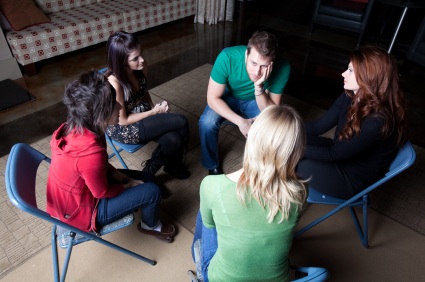10 ways to honor a loved one that has passed away
Posted by Collaborative Counseling

Grief and Loss
Grief is a natural human emotion that occurs when someone we love dies. It is a complex process that can involve a range of emotions, including sadness, anger, guilt, and loneliness. There is no right or wrong way to grieve, and everyone experiences it differently.
Some people find it helpful to talk about their grief with friends and family, while others prefer to grieve in private. There are also many support groups available for people who are grieving.
It is important to allow yourself to feel your emotions and to take care of yourself during this time. Get enough rest, eat healthy foods, and exercise regularly. It may also be helpful to talk to a therapist or counselor.
Here are 10 ways to honor a loved one that has passed away:
- Create a memorial. A memorial can be a physical object, such as a bench or tree, or it can be something more abstract, such as a song or poem. The memorial should be something that reminds you of your loved one and their life.
- Donate to a charity in their name. This is a great way to honor your loved one’s memory and help others at the same time. Choose a charity that was important to your loved one, or one that supports a cause they were passionate about.
- Volunteer your time. Volunteering is another way to give back to the community and honor your loved one’s memory. Find a cause that was important to them and get involved.
- Plant a tree. Trees are a symbol of life, and planting one in your loved one’s name is a beautiful way to honor their memory. Choose a tree that is native to your area and that will thrive in your climate.
- Write a letter. Sometimes the best way to honor a loved one is to simply write them a letter. Tell them how much you loved them and how much they meant to you. You can also share your memories of them and how they’ve impacted your life.
- Create a scrapbook. A scrapbook is a great way to preserve memories of your loved one. Collect photos, letters, and other mementos, and arrange them in a creative way. You can also add captions and write about your memories of your loved one.
- Share their story. Tell others about your loved one and their life. Share stories about their childhood, their accomplishments, and their unique personality. This is a great way to keep their memory alive and to help others learn about them.
- Live your life to the fullest. One of the best ways to honor a loved one is to live your life to the fullest. Do the things that they loved to do and that made them happy. This is a way of keeping their spirit alive and of showing them how much they meant to you.
- Never forget them. The most important way to honor a loved one is to never forget them. Keep their memory alive in your heart and in your mind. Talk about them often and share stories about them with others.
- Be kind to others. Another way to honor a loved one is to be kind to others. This is something that your loved one would have wanted you to do, and it’s a way of spreading their love and compassion to the world.
Resources to Help
If you are struggling with grief, there are many resources available to help you. Here are a few:
- The National Center for Grieving Children and Families: This organization provides support and resources to children, teens, and adults who are grieving.
- The Dougy Center: This organization provides support and resources to families who have lost a child.
- The Compassionate Friends: This organization provides support and resources to families who have lost a loved one.
- The American Foundation for Suicide Prevention: This organization provides support and resources to families who have lost a loved one to suicide.
Losing a loved one is never easy, but there are many ways to honor their memory and keep their spirit alive.
Remember, you are not alone. There are many people who understand what you are going through and who want to help.
Read More
 View Our Locations
View Our Locations Request Appointment
Request Appointment
